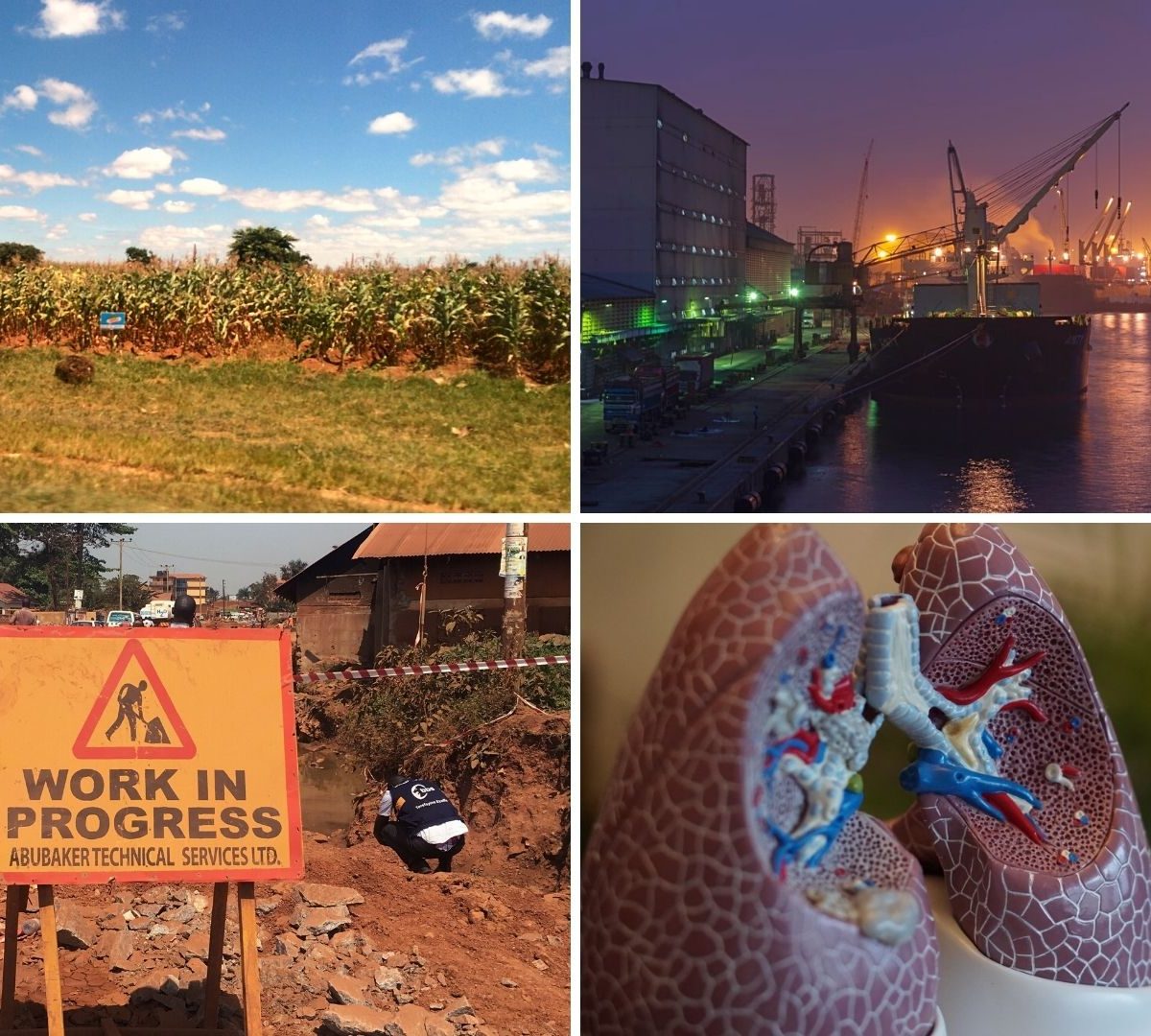
The State of Data in DG’s Work
Three years ago, as we were preparing our new DG organizational strategy, we decided on a significant shift: after more than 15 years functioning as a “generalist” organization, with some specialization in public financial management (PFM), but no sector focus, we identified a set of sectors on which to focus our work. Narrowing our work presented a tradeoff, between keeping ourselves open to all opportunities and beginning to develop deeper partnerships and expertise in a prioritized set of topics.
Over the coming months, we will be refreshing our strategy and refining our approach within our priority sectors. As we review our strategy, we plan to share here much of what we’ve learned through programming in more than a dozen countries – from our work and from our excellent partners – about the state of data in agriculture, tobacco control, open contracting, and the extractive industries. For each theme, we’ll explore who are the key data users, the decisions they make, the most important data gaps, and the crucial risks of data (mis)use. Below are previews from some of our flagship programs.
Agriculture: Bridging Public and Private Sector Needs
Data in the agriculture sector are highly fragmented, collected by both public and private sector, and too rarely shared effectively in a timely and harmonized way. DG’s work in fertilizer – together with the International Fertilizer Development Center and The African Fertilizer and Agribusiness Partnership – and seeds systems – together with The African Seed Access Index – has focused on bringing these disparate strands of data into meaningful analyses of agricultural inputs. Key data gaps in agriculture center on retail-level (e.g agro-dealer) information, as well as disaggregation of data by gender. Data governance challenges include 1.) identifying ways for private sector data to be shared and reused while protecting commercial confidentiality, 2.) and generating subnational data while preserving land – and other – rights of smallholder farmers.
Tobacco Control: Providing Data Users Can Trust
Tobacco Control data suffer from a similar dispersion as agriculture, although differ in one key characteristic: the perceived reliability and impartiality of data sources. The tobacco industry has invested heavily in generating its own data and evidence – ranging from support for new products like electronic nicotine devices (ENDs, or more commonly eCigarettes) to touting the economic benefits of tobacco farming – to discourage tobacco control legislation and enforcement. Governments, and their civil society counterparts, need access to a trusted source of data on key areas including: tobacco prevalence, use of new and alternative tobacco products (e.g. ENDs, shisha), economic and health impacts of tobacco use, and revenue impacts of excise and other taxes, among others. Finding these data, vetting sources, filling gaps, and presenting data in a validated and trusted manner all present their own unique challenges. Finally, capturing new data to fill gaps often calls for household surveys and other individual-level collection of sensitive data, requiring strict measures to collect data ethically and protect it effectively.
Open Contracting (OC): Getting to Impact
Each year, governments spend approximately $13 trillion through public procurement – 97% of this spending is not transparent or open to the public who fund government budgets. Governments themselves often lack the tools and analytics to assess how effective they are in spending public resources, as they seek to save money and efficiently procure services. DG’s support to governments from Chile to Makueni County, Kenya has helped to improve their procurement processes, saving time and money. The key gaps moving forward are improving government and civil society capabilities to assess the impact of improved procurement on service delivery – an area where DG is partnering with Hivos and the government of Makueni County – and the ability to perform more sophisticated analysis on pricing and competitiveness. Still, far too much procurement data live on paper, and there are significant gains to be made from continued digitization and standardization. Linking open contracting with beneficial ownership, while considering commercial confidentiality and individual privacy concerns, is a further frontier issue for OC data governance.
Extractives: Reversing the Flow
For nearly 20 years, the Extractives Industry Transparency Initiative (EITI) has called for and supported greater transparency from national governments and private companies on the deals and dollars of the extractives sectors. However, the flow of these data have been primarily oriented toward global transparency and reporting, while we have identified significant unmet needs for timely, transparent, and actionable data at the country level. Developing better local tools for data aggregation, standardization, reporting, and analysis has the potential to significantly improve the impact of EITI and EI data for decision-making. Additionally, evaluating the needs of women’s and indigenous groups – and weighing them more evenly with powerful constituencies within government and private sector – requires a rethinking of the extractives transparency movement to ensure that these resources are benefiting the communities from whom they are being extracted.
Moving Forward
While we have made strong contributions within each of the spaces above, we recognize just how much we still need to learn. As we share our reflections, we will also be reaching out to various partners, funders, and experts within each to see what we are missing, and inform our next steps in our refreshed strategy.
Photo credit (clockwise from top left): Vinisha Bhatia-Murdach, Ayotunde Oguntoyinbo, Robina Weermeijer, Taryn Davis
Share
Related Posts

The Cancer-Tobacco Link: Using Data to Drive Stronger Tobacco Control Policies
As we observe World Cancer Day today, it is crucial to recognize the significant role smoking plays in the global cancer epidemic. Tobacco use is the leading preventable cause of cancer and cancer-related deaths worldwide, necessitating a dynamic, multidisciplinary approach to tobacco control interventions. DG’s Tobacco Control Data Initiative (TCDI) contains country-specific websites designed to

How Useful Is AI for Development? Three Key Lessons
The development world is buzzing with excitement over the idea that new and emerging applications of AI can supercharge economic growth, accelerate climate change mitigation, reduce inequalities, and more. But what does this look like in real life?

At a Glance | Tracking Climate Finance in Africa: Political and Technical Insights on Building Sustainable Digital Public Goods
In order to combat the effects of climate change, financing is needed to fund effective climate fighting strategies. Our white paper, “Tracking Climate Finance in Africa: Political and Technical Insights on Building Sustainable Digital Public Goods,” explores the importance of climate finance tracking, common barriers to establishing climate finance tracking systems, and five insights on developing climate finance tracking systems.